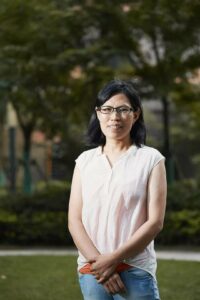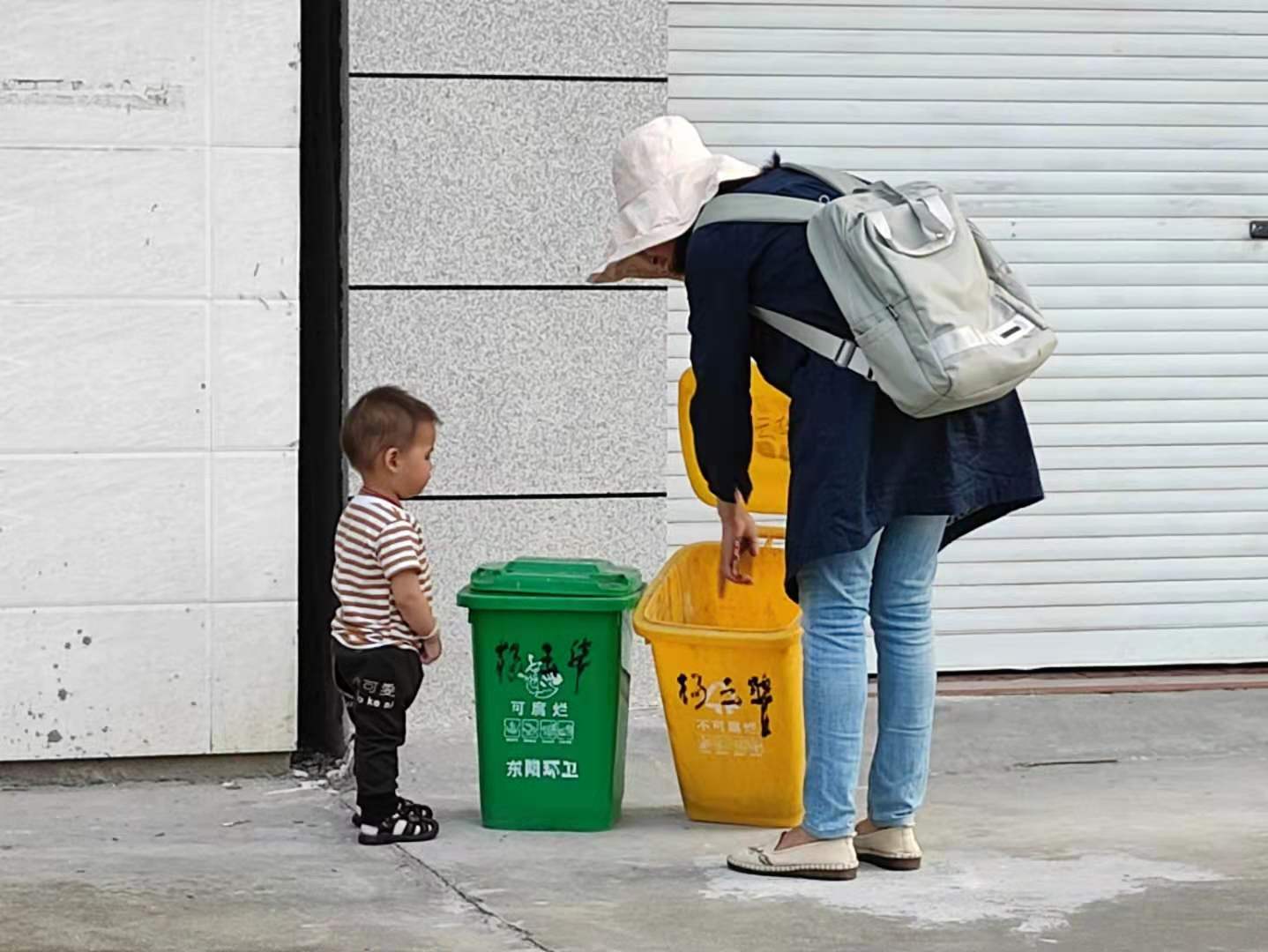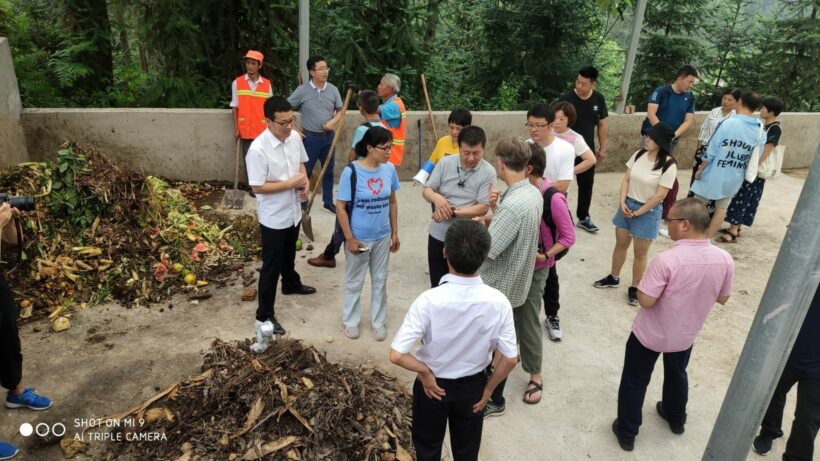Liwen Chen: Inspiring Change One Village at a Time
by Marlet Salazar

As an English major, Liwen Chen initially did not see herself becoming an environmentalist, much less a Zero Waste advocate. But fast forward to the present: her work has turned a village into a Zero Waste model that has inspired other villages, towns, and counties to pursue the same.
This was how it happened.
In 2006, Liwen saw Liao Xiaoyi, founder of the non-profit Global Village of Beijing, on TV talking about her own work, promoting reduced consumption and decreased use of harmful chemicals. Liwen was struck by what she heard and realized that environmental work was what she was called to do. Thus began her volunteer work and involvement in the advocacy.
At the beginning of 2009, Liwen started working in an environmental non-governmental organization (NGO) that focused on chemical safety and climate change. That same year, China’s anti-incineration movement started. “Many protests happened in China which involved people who were opposed to incinerators,” Liwen said. “From then on, I started paying attention to those things and started working on the waste issue. I visited incinerators, landfills, and recycling markets related to waste facilities. It was very important for me to understand waste generation, especially in big cities like Beijing.”
While she was working in the organization, Liwen found that effective waste management policies have not been properly implemented in rural areas.
Early the following year, she joined another environmental NGO and started her work on waste. She also started working with communities affected by China’s incinerators, visiting over 30 incineration plants across the country. She admitted that working with the affected communities to oppose the use of incinerators was one of the biggest challenges she faced in her advocacy.
For over six years (2009-2015), she worked with communities against incineration pollution. She said visiting landfills made her “uncomfortable and very frustrated seeing so much waste.”
Liwen’s exposure to environmental issues led her to realize that there had to be a more sustainable way to manage waste. In 2017, she established the Zero Waste Village. Her previous NGO work enabled her to witness the increasing problem of landfills and the effects of uncollected garbage in the villages not only on the environment but also on people’s health, while her involvement in policy-making made her realize that most of the solutions centered around urban areas, leaving rural communities with no system for waste management.
“It was time to zoom in on enabling village or town leaders on how to enforce waste management within their areas,” Liwen said.
“Rural areas have the most potential to implement composting because they have the location to do so,” she added
To implement her vision, Liwen went back to her roots in Hebei and started a program in Laishui County. Without much financial aid and often using their own money to buy materials such as garbage cans in the first two villages, Liwen spent the first weeks teaching residents the basics of waste sorting and how it could become part of their lifestyle.

She has taught over 60 rural communities in Hebei, Jiangxi, Hubei, and Zhejiang provinces about waste segregation and Zero Waste since the summer of 2017.
Liwen and her group were persistent in teaching the residents about sorting and composting until finally, their work started bearing fruit. That was when they decided to scale up the program to the town level in 2018.
“I don’t think my goal has changed but my work has shifted since 2017,” Liwen explained. “I started with incinerators then I shifted to Zero Waste. There are many challenges why it is hard for China to adopt and practice waste segregation.”
Misunderstanding and uncooperative residents in townships are just a few of the challenges Liwen had to deal with. At one point, she thought that she would not be able to handle it. But she persisted. She and her team held dialogues with the residents to ensure that their message was understood.
“We make it possible to help people overcome the barriers in waste separation,” she said. “We also prove that waste separation also means increasing the investment or government budget to finance the programs.”
So far, the Zero Waste Village has helped design the biodegradable waste and non-biodegradable waste-based management system of five towns and one county. The system mostly involves ensuring that all stakeholders, including relevant government agencies, are adhering to the processes. All of these are monitored and recorded, and the data gathered are utilized in tracking the progression of the program.
The Zero Waste Village’s work has now extended to Shangrao municipality based on the Dongyang Township’s program.
To ensure the sustainability of their programs, Liwen and the members of Zero Waste Village started making documentaries to communicate their efforts to more people. They also started developing textbooks to illustrate how to practice rural waste separation programs.
“Working with the stakeholders can be an effective way of empowering people and spreading the importance of waste separation as well as composting. This will also ensure that programs are institutionalized and sustained even after many years that they were implemented,” she said
“China’s waste is a monumental problem given its population and it being an industrial nation. But households’ managing their own waste will have a great impact on the country and the countryside,” she added.










